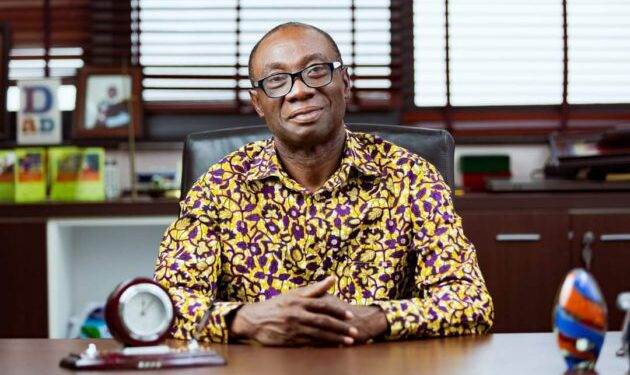Former Power Minister and Member of Parliament (MP) for Pru East constituency, Dr Kwabena Donkor says that it is not within the prerogative of the Electricity Company of Ghana (ECG) to decide whether or not to comply with an order issued by the Public Utilities Regulatory Commission (PURC).
According to him, the PURC functions as a regulatory body, and any directives it issues should be adhered to by the relevant entities.
He stated, “If for any reason you can’t comply, you immediately go back to the regulator and state your case or you can go to court to quash the orders of the regulator.”
Speaking on JoyNews’ Newsfile on Saturday, March 30, Dr Donkor stated that the primary role of the PURC is to safeguard the interests of consumers and producers throughout the energy value chain.
He emphasised that the PURC holds authority over all aspects of power supply, and therefore, any legally sanctioned directive issued by it must be complied with by the concerned entity.
“If you don’t comply, the entity can be fined and so it is not for the ECG to say we have a stable transmission network so they won’t comply or decides to choose where and when to comply,” he said.
His remark comes after the PURC ordered the ECG to present to it a comprehensive report of its operations about tariff revenue allocation, regulatory audit data and operational matters among others by close of day on April 2, 2024.
The commission had also instructed the Electricity Company of Ghana to distribute funds from the Cash Waterfall Mechanism (CWM) by March 25, 2024.
PURC explained that the order, which was issued under Sections 3 and 24 of the Public Utilities Regulatory Commission Act, 1997 (Act 538), was a result of some major observations it had made concerning a general decline in the quality-of-service delivery, including increasing power outages across ECG service areas from January 1, 2024, to date
But updating Ghanaians in a press release dated March 26, PURC said ECG is yet to complete payments to the energy sector players along the electricity value chain.
The statement further stressed that “PURC shall validate all payments made along the electricity value chain for an approval month and publish it on the PURC website not later than the second week of the following month.”
Clarifying further, Dr Donkor explained that the responsibility for the national interconnected transmission system lies with the Ghana Grid Company (GRIDCo), not ECG.
Therefore, he stressed that ECG should refrain from making statements on matters outside its purview.
Commenting on the recipient of the PURC’s directive, the Pru East MP emphasised that the order should be directed to the ECG.
According to him, the transmission system is different from the distribution system.
“The transmission system is just like the Kayayei. You give the Kayayei load to carry and the Kayayei delivers the load from the point contracted to the other point.
“If the load is half load, the Kayayei carries it, if it’s full load, it will carry the full load so you can’t blame the Kayayei for bringing you half load.”
The MP clarified that GRIDCo operates as the transmission company, responsible for conveying power to the distribution companies which are the ECG and NEDCo.
“What GRIDCo does is to wheel the power contracted and the power supplied to their substations for them to distribute.”
This, he emphasised that ECG should not bear the blame if they encounter shortages in the power supply available for distribution.


